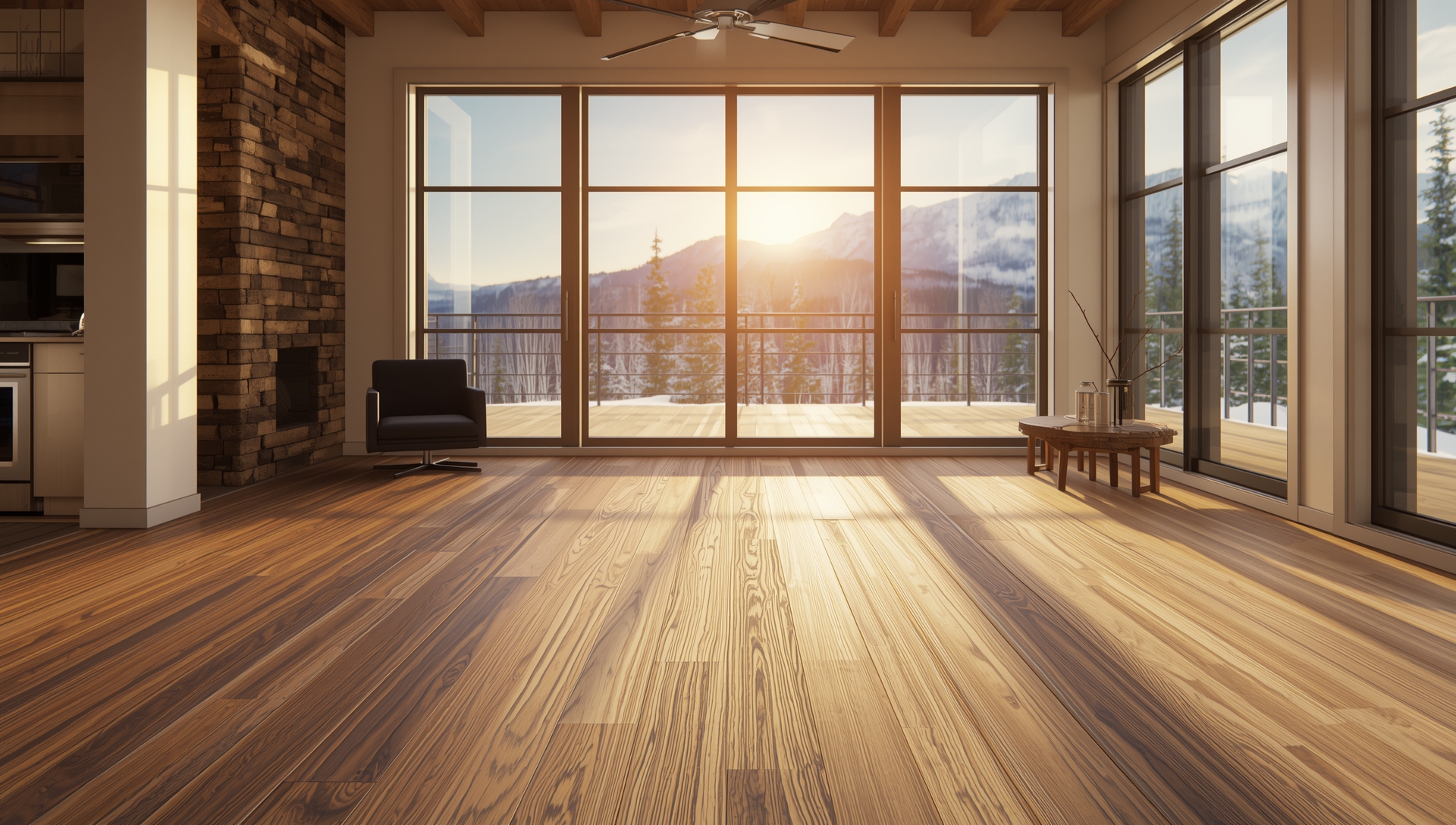Caveman Flooring
October 21, 2025

Colorado’s unique climate presents both opportunities and challenges for homeowners selecting flooring. With dramatic temperature swings, low humidity, and intense UV exposure at high altitude, choosing the wrong flooring can lead to costly problems down the road.
Understanding how different flooring materials respond to Colorado’s environmental conditions will help you make an informed decision that protects your investment and keeps your home comfortable year-round.
Colorado’s semi-arid climate creates specific conditions that affect flooring performance:
Temperature fluctuations can cause materials to expand and contract dramatically. Winter lows and summer highs create stress on flooring joints and seams.
Low humidity levels throughout much of the year can cause wood floors to shrink and develop gaps. Most areas see humidity levels between 25-45%, well below the ideal 30-50% range for hardwood.
High altitude UV exposure is significantly more intense than at sea level, potentially fading and degrading certain flooring materials faster than expected.
Seasonal moisture variations from snow melt and summer storms can create sudden humidity changes that impact flooring stability.
Engineered hardwood offers the beauty of real wood with improved stability. The multi-layer construction resists expansion and contraction better than solid hardwood, making it ideal for Colorado’s climate variations.
Benefits:
Vinyl plank flooring has become increasingly popular among Colorado homeowners for good reason. High-quality LVP handles temperature and humidity changes exceptionally well.
Benefits:
Modern laminate flooring offers durability and style while handling Colorado’s climate challenges effectively. Quality laminate resists moisture better than traditional options.
Benefits:
Solid Hardwood requires careful consideration in Colorado. While beautiful, it needs proper acclimatization and humidity control to prevent gaps and movement issues.
Natural Stone can work well but requires proper sealing and may feel cold underfoot during winter months.
Carpet in basements or areas prone to moisture should be avoided, as Colorado’s temperature swings can create condensation issues.
Proper installation is crucial for any flooring to perform well in Colorado’s climate. Professional flooring contractors in Boulder understand local conditions and can:
Working with experienced local professionals ensures your flooring investment will stand up to Colorado’s unique environmental challenges.
Consider your lifestyle, budget, and specific room requirements when choosing flooring. Areas with high foot traffic may benefit from vinyl plank flooring, while formal spaces might call for engineered hardwood.
Climate isn’t the only factor, but understanding how different materials respond to Colorado conditions will help you avoid costly mistakes and ensure long-term satisfaction with your flooring choice.
For expert guidance on selecting and installing the right flooring for your Colorado home, consider consulting with local professionals who understand the unique challenges of our climate. Visit cavemanflooring.com to learn more about flooring solutions designed to thrive in Colorado’s environment.
We’re here to help! Reach out anytime with questions about your flooring project or estimate.